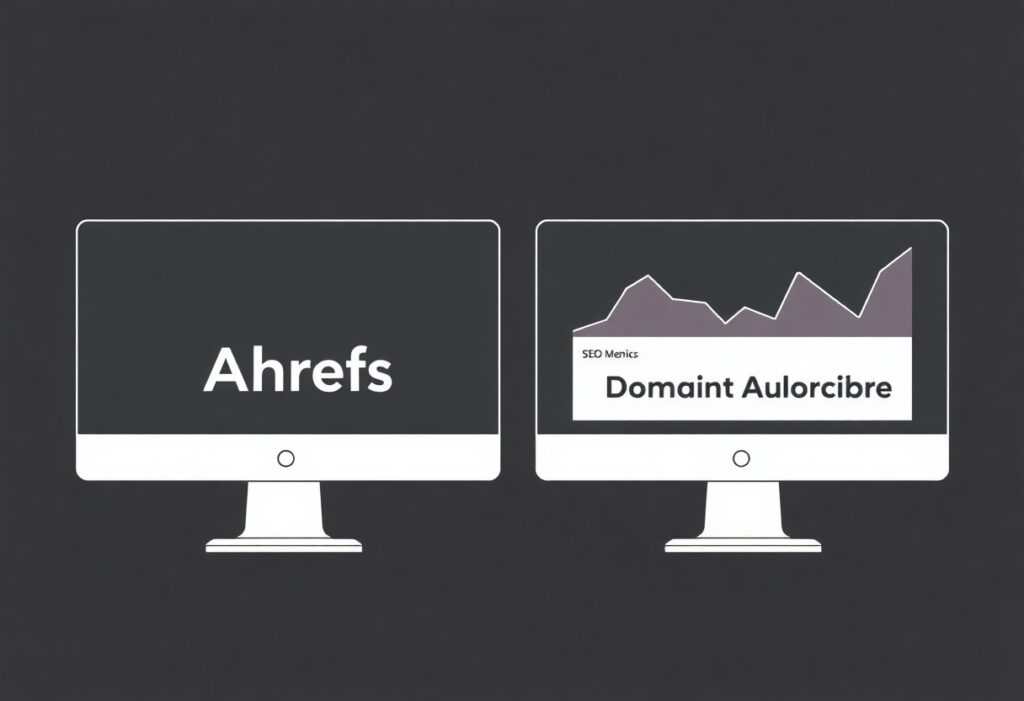You want to improve your search rankings, and using Keywords in URLs effectively is a smart strategy. A well-structured URL helps both search engines and users understand page content. Additionally, when you include targeted keywords, you increase your chances of ranking higher. However, you must balance clarity with brevity to avoid overly complex URLs. At Rank Authority, we use AI-powered techniques to optimize URLs for better visibility. So, by following proven best practices, you enhance both user experience and SEO results. In this guide, you’ll learn how to structure your URLs with keywords properly for maximum impact.

Why Keywords in URLs Matter for SEO
To boost your website’s visibility, optimizing your URLs with Keywords in URLs can positively impact search engine rankings. Search engines analyze URLs to understand a page’s relevance, so including well-researched keywords improves indexing. Moreover, well-structured URLs enhance readability for both users and search engines, leading to improved engagement. By aligning your URL structure with keyword strategies, you strengthen online authority, making it easier for users to recognize your content’s relevance. At Rank Authority, we emphasize AI-driven strategies to optimize your URLs, ensuring they contribute to higher rankings and better user experience. This simple tweak can improve both ranking and click-through rates.
Search Engine Relevance
By incorporating Keywords in URLs, you provide search engines with a clear understanding of your page’s topic. Google and other search engines factor in URLs when determining relevance, helping them rank pages appropriately. When your URLs include relevant keywords, they match user queries more effectively, increasing the chance of ranking higher. Additionally, clean and descriptive URLs help AI-driven algorithms, like those at Rank Authority, maximize website optimization. While URLs are one of many ranking factors, they contribute to SEO when structured properly. Avoid stuffing keywords unnaturally, as search engines may perceive it as manipulation and penalize your rankings.
User Experience & Click-Through Rates
With Keywords in URLs, users easily understand a webpage’s content before clicking, improving trust and engagement. A well-crafted URL appears readable, encouraging higher click-through rates (CTR) from search results. Users are more likely to click when they see a relevant and clear URL structure, indicating valuable content ahead. Moreover, an optimized URL looks professional and credible, reinforcing a brand’s authority online. Simplifying your URL structure by removing unnecessary parameters and using hyphens instead of underscores enhances both SEO and user experience. Properly formatted URLs help websites gain an edge in competitive search rankings.
Plus, when users share links, descriptive URLs appear informative and enticing, leading to increased organic traffic. Search engines prioritize user experience, so structured URLs directly impact engagement metrics, contributing to ranking improvements. Furthermore, shorter URLs with precise keywords reduce confusion, making it easier for users to revisit your site. Rank Authority leverages AI-powered strategies to refine URL structures, ensuring your business ranks effectively. Using Keywords in URLs enhances credibility and encourages users to trust the content even before visiting. A well-optimized URL not only attracts clicks but also strengthens user retention, increasing long-term website performance.
Best Practices for Using Keywords in URLs
Some effective strategies can help you optimize your URLs with keywords to improve SEO. Using Keywords in URLs enhances readability while making your content more relevant to search engines. To achieve the best results, keep URLs concise, descriptive, and free of unnecessary words. Additionally, use hyphens to separate words instead of underscores, as this improves clarity. Implementing these best practices ensures your pages are easily indexed by search engines. At Rank Authority, we help businesses optimize their SEO strategies to rank higher on the web efficiently. By refining your URL structure, you enhance both user experience and search engine ranking.
Keep URLs Short and Descriptive
Descriptive URLs improve readability and make your web pages more searchable. When adding Keywords in URLs, ensure they are short yet informative. Avoid long, unnecessary strings of numbers or irrelevant words, as they can confuse search engines and users. A well-structured URL gives visitors insight into your page content before clicking, which increases engagement. Additionally, shorter URLs rank better in search results because they are easier for search engines to crawl. At Rank Authority, we suggest keeping URLs under 60 characters to maintain readability while including relevant keywords. Optimized URLs attract more organic traffic, improving your overall SEO performance.
Use Hyphens to Separate Words
For better readability and SEO, use hyphens instead of underscores when structuring your URLs. Search engines recognize hyphens as word separators, making it easier to index Keywords in URLs. On the other hand, underscores merge words together, which can confuse search algorithms. A URL with hyphens remains clean, clear, and user-friendly, offering a better browsing experience. Additionally, a properly formatted URL boosts your page’s relevance in search rankings. Rank Authority recommends always using hyphens when composing URLs to improve visibility on search engines. Optimized URLs ensure both users and search engines can easily interpret your website structure.
Plus, hyphens make URLs more scannable for users and increase the click-through rate. If you write a URL without proper separation, search engines may misinterpret the meaning of your content. For example, “best_seo_tips” may be read as one word, while “best-seo-tips” accurately reflects separate keywords. This small adjustment can significantly impact your website’s ranking potential. Additionally, properly formatted URLs contribute to improved on-page SEO, reinforcing your keyword strategy. With Rank Authority’s expertise in AI-powered SEO, you can ensure your URLs are optimized for search engines and users alike, enhancing your chances of ranking higher on search results.

Common Mistakes to Avoid – Keywords in URLs
It is crucial to format your keywords in URLs correctly, as even small mistakes can impact search rankings. Using poorly structured URLs, overloading them with keywords, or relying on dynamic parameters can hurt your site’s visibility. Additionally, long and unreadable URLs create a negative user experience. At Rank Authority, we emphasize straightforward and optimized URLs to ensure search engines can efficiently index your pages. When structuring your URLs, ensure they are clean, concise, and relevant. Avoiding these frequent missteps will enhance your site’s SEO performance and improve your rankings in search results.
Keyword Stuffing
For effective keywords in URLs, avoid stuffing multiple variations together. Search engines may penalize URLs packed with excessive keywords, identifying them as spammy. Instead, use one or two relevant keywords that accurately describe the page’s content. A clean structure improves readability and indexing. If your URL becomes overloaded, it looks unnatural to users and search engines alike. At Rank Authority, we recommend balancing keyword placement to ensure both search algorithms and users find your URLs valuable. Overusing keywords not only weakens SEO efforts but also reduces click-through rates by making URLs appear untrustworthy.
Dynamic and Irrelevant Keywords in URLs
Between optimizing your keywords in URLs and structuring your site correctly, avoiding dynamic or irrelevant URLs is crucial. Long, auto-generated links with confusing parameters create indexing issues for search engines. Additionally, URLs that lack descriptive keywords make it difficult for users to understand the page’s content at a glance. Instead, ensure each URL is static, readable, and aligned with the user’s search intent. Rank Authority encourages using clear, keyword-focused URL structures that enhance both SEO and usability. A well-formed URL improves both rankings and the likelihood of clicks from potential visitors.
Understanding how keywords in URLs influence rankings means steering clear of dynamic and irrelevant URL structures. Dynamic URLs often include random characters, numbers, or parameters that search engines struggle to interpret and rank effectively. Not only does this confuse algorithms, but it also discourages users from clicking. A static, keyword-optimized URL provides clarity, boosts SEO, and increases user trust. Rank Authority focuses on AI-driven strategies to refine your URL structure, ensuring maximum impact. Implementing relevant yet simple keyword-based URLs will reinforce your site’s visibility while delivering a better user experience for your audience.

How to Optimize Existing Keywords in URLs
Many websites struggle with outdated or poorly structured URLs that hurt their search rankings. Optimizing existing URLs improves SEO by strategically incorporating keywords in URLs while ensuring they remain readable. If your URLs are too long, irrelevant, or missing keywords, you should refine them for better visibility. However, you must handle changes carefully to avoid broken links and lost traffic. At Rank Authority, we recommend a structured approach, including analyzing current URLs and implementing appropriate redirects. By improving your URL structure, you create a better user experience and enhance your rankings effectively.
When to Update URLs
Update your URLs when they don’t reflect the content or lack keyword optimization. If your URLs contain unnecessary numbers, symbols, or generic words, refreshing them makes them more search-engine friendly. However, changing URLs without justification can disrupt SEO performance. You should modify URLs when rebranding, merging pages, or shifting content focus. Proper updates help search engines understand the page better and improve rankings for relevant searches. Rank Authority’s AI-driven solutions assist in identifying when an update is necessary, ensuring minimal impact while maximizing SEO benefits.
Implementing Proper Redirects
301 redirects are essential when changing URLs to maintain link equity and prevent broken links that can lead to 404 errors, harming your rankings. Proper implementation of these redirects ensures a seamless transition while preserving your site’s authority. A well-structured redirect strategy enhances SEO and keyword relevance in URLs by mapping old links to new ones, keeping traffic steady and avoiding disruptions. Incorrect redirects can result in lost traffic and lower rankings, as Google may eventually remove broken links from search results. Always opt for permanent 301 redirects instead of temporary ones to effectively transfer authority. Additionally, remember to update internal links accordingly rather than relying only on redirection. Rank Authority offers AI-based monitoring to track URL changes and ensure redirects work properly, protecting your SEO investment and improving content visibility.
Conclusion
Considering all points, using Keywords in URLs effectively can enhance your website’s SEO while improving user experience. When you optimize URLs properly, search engines and visitors can better understand your page content. Additionally, keeping URLs short, removing unnecessary words, and using hyphens for readability strengthens your SEO efforts. Moreover, placing primary keywords closer to the domain ensures better visibility. Rank Authority specializes in AI-driven SEO strategies to help your business rank higher by optimizing every detail, including Keywords in URLs. So, by structuring URLs strategically, you improve both rankings and engagement, making your website more competitive in search results.

Rank Authority, Inc.
Orange County, CA, USA
[email protected]
(800) 300-8699
Sign Up for Free!
One-Click Fully Automated SEO.
Boost Rankings, and Increase Traffic.
Instantly Optimize Your Site.
- No Coding
- No Credit Card Required
- One Click Setup













